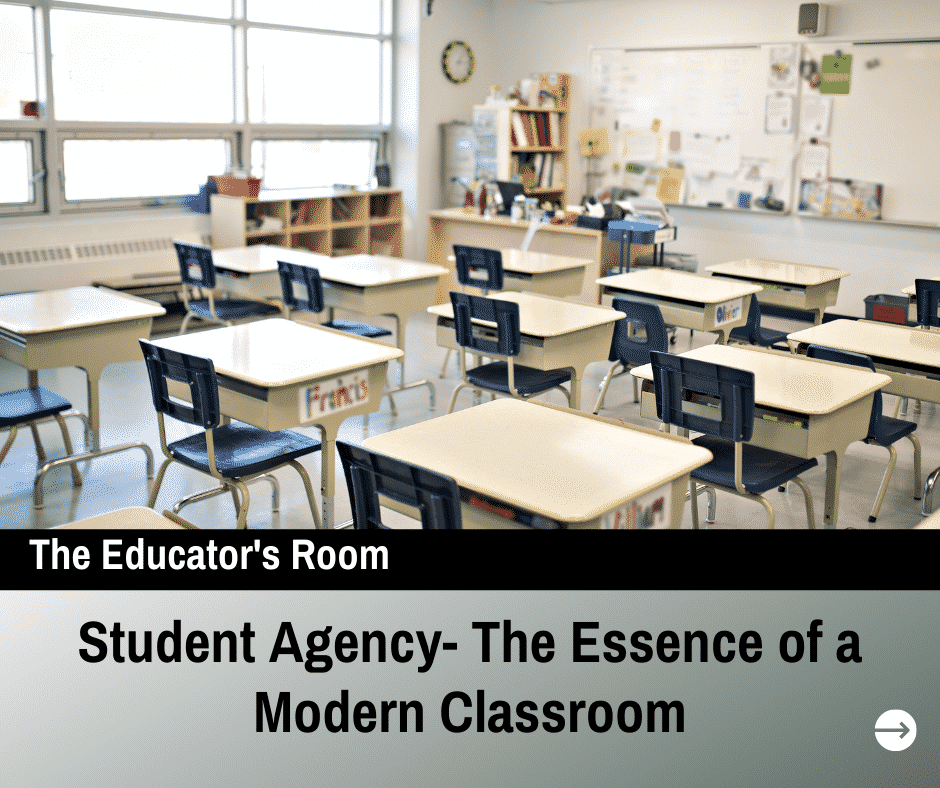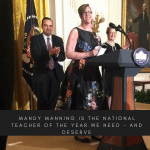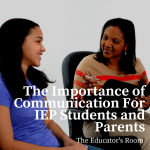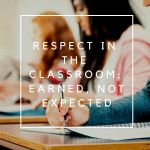 Sanam Edwards is a teacher in DPS International, Gurgaon (India). She enjoys building the student’s voice and choice within the classroom environment while infusing her quirky sense of humor into daily activities. She is an advocate for technology in the classroom and is constantly on the lookout for new ways to engage the students emotionally, especially in light of the COVID crisis that has recently taken over the world.
Sanam Edwards is a teacher in DPS International, Gurgaon (India). She enjoys building the student’s voice and choice within the classroom environment while infusing her quirky sense of humor into daily activities. She is an advocate for technology in the classroom and is constantly on the lookout for new ways to engage the students emotionally, especially in light of the COVID crisis that has recently taken over the world.
I was always enthralled by the principles of an IB education, which included progressive ideas of student agency, action, and a mission to create global citizens of the future. I endorsed the IB methodology for my own children, so I immediately grabbed the opportunity when presented with the fortuitous chance to work in an IB school.
However, my expectations of entering the classroom and revolutionizing teaching were short-lived. I realized the importance of creating firm building blocks to establish a foundation that would support the IB thought process, though that would not be enough. I still had to come up with ways to intricately connect my students to each facet of the program to enable us to grow together in the process.
Every session with our coordinator gave me new ideas, and each workshop inspired me to be more ambitious. My journey with IB became like a jigsaw puzzle with pieces that almost meshed but never perfectly fit. It was with the sudden awareness that I understood it was about what I could impart to students with the freedom IB afforded me. From an early age, I imbibed a valuable lesson from my mother, who always believed even the smallest kindness had a ripple effect.
[bctt tweet=”I recognized that what held true for me was the quote by Vincent Van Gogh –“ Great things are done by a series of small things brought together.”” username=””]
I reflected on my time as a teacher, and it struck me that I felt most fulfilled when I was laughing with my students since their happiness genuinely mattered to me. I allowed their well-being to penetrate my soul, which personally affected everyday decisions. This thought led me to focus on the smaller choices that result in greater happiness rather than grand ambitions, which quite possibly may be selfishly driven and short-lived. Perhaps this was the reason why I chose to become an educator in the first place.
I asked myself how my students could be made more comfortable. It was logical to presume that if they were physically uncomfortable, they would not work productively, so I decided to make small changes in their environment. I placed a carpet in the middle of the classroom and invested in cheerful kitsch throw pillows to brighten their workspace. Anyone who has visited India knows that the mind can get quite addled in the muggy heat and soaring temperatures, so I afforded the children the freedom to take off their shoes and relax on the carpet in the sweltering summer weather. I encouraged them to randomly switch seating arrangements around during their classes if they preferred to do so.
When the students were introduced to the new idea of movement and freedom within their environment, the excitement was tangible. I could sense a change that became the foundation of our relationship moving forward. They relaxed into their new surroundings, and it was obvious they were extending themselves to keep the current scenario in place. Instead of the expected distraction, students became more focused as they sat with friends or like-minded companions. They buddied up with people they trusted rather than work with a teacher-assigned group and didn’t hesitate to approach peers for advice and help. They seamlessly moved from carpet to desks and collected recycled shoe boxes to use as writing supports on the floor when needed.
The trust between us grew as it became clear that we could make decisions together without essential agreements being broken by either side. We charted out plans of how students would like to spend their prep time. They debated on activities that they enjoyed most and decided on projects that were a mix of creative and academic. This demonstrated to me how far the students had progressed in their ability to accommodate the wants and expectations of everyone concerned. They created a practical and sensible balance between time to complete practice sheets, read, doodle, and engage in many other activities. We kept adjusting this rota as and when we felt a need for change.
The students began to minutely examine their environment and question why things were done in a certain way. They asked why I had arranged the library according to language and suggested that reading material should be divided as per level. Each child could select a book quickly and easily rather than peruse the entire language section to find a suitable read. I asked them to introspect on how many levels there should be to cater to all needs, which resulted in a round table conference where an honest discussion took place with everyone’s opinions being considered. It was decided there should be three reading levels, which were then sorted and arranged by the young readers themselves. The children painstakingly went through each book, then proceeded to color code and organize them in a manner that made sense to all.
As I sat back and watched them work, I realized that this was just the tip of the iceberg that was the depth of International Baccalaureate. When I began to dip my toes into student agency by giving the scholars a voice and choice about their environment, it snowballed into something much bigger. The class did not think twice before taking ownership of their surroundings or their decisions. They had seemingly matured into young adults who took an active interest in making things better.
[bctt tweet=”It inspired me to think that if we could keep allowing students to become independent with the ability to overcome obstacles using their own strength of character, we could empower them to be confident and capable individuals for the rest of their lives.” username=””]
Children may not remember every lesson taught by their third-grade teacher, but they will always cherish how their thoughts were given serious consideration and the sense of self-worth bestowed on them. The feeling of achievement is something no one can take away from an individual, and the lingering feelings of pride and accomplishment will always be an asset when facing life’s challenges.






